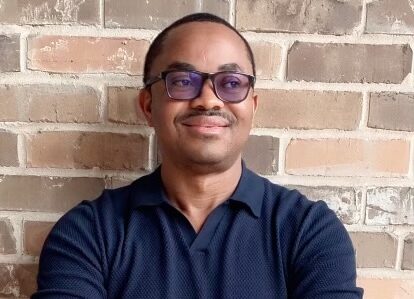As I settled on this piece, my thoughts turned to the enduring lesson of Easter, a narrative steeped in grace, redemption, and the quiet triumph of love over judgment. It is a reminder that we, all of us, are fallible, susceptible to weakness, failure, even betrayal. Like the disciples who scattered, Peter who denied, and the crowd that turned its back, we stumble. And yet, mercy prevails. For reasons I can’t fully explain, my mind wandered to Sam.
I often wonder where Sam is these days. We called him Big Sam, partly because of his imposing frame, but mostly because of the quiet strength he carried, an aura that made you listen when he spoke, as though wisdom had found a steady home in his voice. The last I heard, he had japa’d to Australia, like so many other young Nigerian doctors, seeking dignity, stability, and the simple assurance of a steady meal.
Back in the year 2000, we were house officers at the Military Hospital in Myhoung Barracks, Yaba. There was Sam, Richard Ikpegbu (God rest his soul), the two Emekas (Oragwu and Odenigbo), Ada Obekpa, a soft-spoken chap from Plateau State named Isa (whose surname now escapes me), and others from across the country. We were young, idealistic, and newly minted from the safe halls of medical school into the unforgiving chaos of a broken system.
It was our first baptism of fire in how Nigeria treats her young professionals: with disregard veiled in bureaucracy. For over six grueling months, we donned our pristine white coats each morning, stethoscopes in hand and hunger in our bellies. The military administration, for reasons never fully explained, failed to pay us even the barest minimum wage. Yet, we showed up. Every day. We saw patients, obeyed orders from senior colleagues, and tried to drown the growl of empty stomachs in cups of bitter tea and borrowed resilience.
Richard was fortunate, if you could call it that. He picked up shifts at a senior doctor’s private clinic, working locum for next to nothing. The rest of us leaned heavily on stipends from home, if we were lucky enough to have any. Still, we endured. An ethnically diverse group, bound not just by profession but by shared deprivation. As a friend often reminds me, “Naija no spoil today —E don tey.”
Sam stood out, not just for his height, but for the way he moved through life with quiet dignity. He was soft-spoken, never one to dominate a room, yet when he spoke, the room fell silent. He had a way of distilling complex truths into simple, profound reflections.
I remember one conversation in particular. Sam told us about his Uncle Paul, a man who, for years, had been the family’s moral compass. A devout, disciplined man. The kind who quoted scripture not for show, but because it shaped his life. If Sam or his siblings misstepped, it was Uncle Paul who was called in to set them straight.
But then, Uncle Paul got a job with the NNPC.
What followed was a metamorphosis no one saw coming. The paragon of virtue became almost unrecognizable. He disappeared for days, chasing every distraction with a pulse and a skirt. His once-admiring family watched in disbelief as the man they idolized unravelled before their very eyes.
That story stayed with me. Recently, I came across a quote that instantly brought it all flooding back: “Until you have the money to finance your temptations, don’t brag about morals. Too much is hidden in poverty.”
It struck a nerve.
Because the hard truth is this: what we often brand as “morality” may merely be the absence of opportunity. For many, faithfulness is not a virtue, it’s an untested default. Humility isn’t always a choice, it’s what’s left when pride has no resources. Integrity, in some cases, is simply what remains when temptation hasn’t yet knocked.
Sam’s uncle wasn’t a bad man who became worse. He was an ordinary man who had never been tempted deeply enough to reveal what lay dormant. And in many ways, aren’t we all the same?
How often have I seen people, once grounded, self-effacing, almost saintly in their struggle, evolve into something altogether different the moment success or wealth came calling? The humble man becomes flamboyant. The disciplined man becomes entitled. The principled woman now negotiates values. And the only thing that changed? Options. Access. Power.
This isn’t to say everyone falls. But perhaps we should stop praising restraint that’s never been challenged. Maybe we should tread a little more gently in our judgments of those who stumble, because, given the right set of circumstances, many of us would too.
In Nigeria today, those who once stood at the forefront of protest, loud in their condemnation of previous administrations, are now the most fervent apologists for the current government. Yesterday’s critics have become today’s enforcers, eager to silence dissent and imprison opposing voices under the same authoritarian tactics they once decried.
President Tinubu, once hailed as a courageous civil and political rights activist who defied military tyranny, now presides over a government that stifles opposition, erodes democratic checks, and reduces the legislature and judiciary to mere extensions of the executive branch. The very institutions he once demanded be free and fair are now tools of consolidation under his watch.
And then there is the activist turned electoral actor, once a familiar face in civil society, denouncing electoral fraud with fiery conviction. But when power shifted in his favor and money changed hands, his tune changed. In my own state, he was allegedly instrumental in snatching a clear gubernatorial victory from the Labour Party and handing it, undemocratically, to the PDP. The same man who once cried foul from the rooftops now whispers complicity in the corridors of influence.
The tragedy isn’t just the betrayal of principle, but the speed and ease with which it happened. Those who once demanded justice now demand silence. And those who once called for change have become gatekeepers of the very rot they swore to uproot.
There are instances, quiet, piercing moments, when life disrobes us of our carefully curated moral postures. In those moments, we are confronted not with the people we pretend to be, but with the disquieting realization that much of what we deem as virtue may, in fact, be circumstantial. Morality, it seems, can sometimes be little more than the privilege of having had no occasion to betray it.
It is a subtle arrogance we often carry, the assumption that our goodness is intrinsic, when in truth, it has rarely been tested. We confuse the absence of temptation with the presence of principle, mistaking a lack of exposure for a strength of will. Someone once said, “You call it corruption until the benefit lands in your lap. Then it’s called networking. If you’re pious, perhaps even providence.”
How effortlessly our moral lexicon shifts when the consequences suit us.
Discipline feels effortless when desire is absent. Fidelity seems noble when no alternative beckons. Honesty appears natural when deception offers no reward. And from this unchallenged pedestal, we often cast judgment, totally oblivious to how much of our so-called integrity rests not on virtue, but on a lack of viable alternatives.
This is not an ode to moral relativism, nor a romanticization of failure. Rather, it’s a call to intellectual and ethical humility, a recognition that judgment, when divorced from context, is not a sign of discernment, but of complacency.
It is remarkably easy to scorn the woman who remains in a corrosive relationship, until you are made to choose between your dignity and your security. Easy to shake your head at the addict, until pain becomes your only companion. Easy to ridicule the man who anesthetizes his sorrow, until you carry a grief that language cannot contain. Easy to condemn the one who compromised, until your own ideals are placed on trial, not in theory, but in the furnace of necessity.
And when that fire comes, and inevitably, it does, you begin to understand that true morality is neither loud nor performative. It is forged in solitude, in the quiet agony of decision, and it exacts a price.
So, no, we ought not blur the boundary between right and wrong, nor should we canonize our flaws. But we must, without fail, resist the impulse to weaponize our untested virtue. Because morality is not evidenced by a spotless record, but by the choices made when failure is both accessible and justifiable.
To believe ourselves superior simply because we have not encountered another’s crucible is folly. Life has a way of reducing even the most self-assured among us to silence. The very action you once derided may, with time and circumstance, become the one you come to understand most intimately.
And should that day arrive, may it find you not brittle with pride, but softened by compassion.
We are all, in our own ways, unfinished. Navigating chaos with borrowed tools, walking through stories whose complexities no outsider will fully grasp. So let us keep our standards, yes but let us elevate our grace even higher. Let us speak truth but temper it with mercy. And above all, may our integrity be the kind that endures in darkness, when no one is watching, and no applause is waiting. That my friends, is the true spirit of Easter.
Osmund Agbo is a US-based medical doctor and author. His works include Black Grit, White Knuckles: The Philosophy of Black Renaissance and a fiction work titled The Velvet Court: Courtesan Chronicles. His latest works, Pray, Let the Shaman Die and Ma’am, I Do Not Come to You for Love, have just been released.
Support PREMIUM TIMES’ journalism of integrity and credibility
At Premium Times, we firmly believe in the importance of high-quality journalism. Recognizing that not everyone can afford costly news subscriptions, we are dedicated to delivering meticulously researched, fact-checked news that remains freely accessible to all.
Whether you turn to Premium Times for daily updates, in-depth investigations into pressing national issues, or entertaining trending stories, we value your readership.
It’s essential to acknowledge that news production incurs expenses, and we take pride in never placing our stories behind a prohibitive paywall.
Would you consider supporting us with a modest contribution on a monthly basis to help maintain our commitment to free, accessible news?
TEXT AD: Call Willie – +2348098788999





